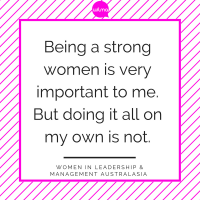UNDP leader Helen Clark calls for the removal of barriers for increased women participation in leadership roles in both the public and private sector.
United Nations Development Programme administrator Helen Clark has urged wider society to remove barriers that have held women back from taking leadership roles, pointing out that companies that include women in decision-making perform better.
Speaking at the inaugural lecture at the UNDP Global Centre for Public Service Excellence in Singapore, Ms Clark said women’s leadership in the private sector is beginning to receive increased attention and that the corporate sector is the “last bastion of male dominance of top positions”.
Ms Clark, who is also the former prime minister of New Zealand, pointed out that in OECD countries, women account for under one third of senior managers, and there is only one woman for every ten men on corporate boards.
“Clearly, there is much work to be done to close these gaps,” she said.
Recent research examining gender balance in the top 300 companies across the United States, Europe, and Asia makes the case that gender balance must be pursued not only on corporate boards, but also among senior managers on executive committees who report directly to the CEO, she added.
Thirty-eight of the top 100 companies in Europe and 71 of the top 100 in Asia have no women at all in their executive management teams, she noted.
This is despite research evidence that suggests when companies include women in their decision-making, they perform better. Ms Clark cited, as an example, one study that looked at nine companies in India run by women which outperformed the 30 leading listed firms on the Bombay Stock Exchange in year-on-year growth rates from 2004 to 2009.
“Thus the economic case for women’s equal participation and decision-making in the private sector can certainly be made… Gender equality is not just the right thing to do, but also the smart, economic thing to do,” she told the 120-strong audience at the centre on June 3.
Women leaders in Singapore
Singapore was highlighted as a country where the gender gap needed to be addressed.
“ Thus the economic case for women’s equal participation and decision-making in the private sector can certainly be made… Gender equality is not just the right thing to do, but also the smart, economic thing to do
– Helen Clark, UNDP administrator
Ms Clark cited a recent review gender diversity on boards and among the senior management of Singapore-listed companies, which found that women in Singapore hold just 8.3 per cent of directorships on these boards. At the current rate of growth in numbers, women would represent only seventeen per cent of directors by 2030.
The Diversity Task Force said of its review: “There is low awareness about the importance and benefits of gender diversity among SGX-listed companies, and little is being done to improve gender diversity.”
Among the companies surveyed, only 33 per cent agree that gender diversity at board level is important. Overall, companies are not yet convinced of the benefits of gender diversity on boards, they added.
Singapore Member of Parliament, Dr Intan Mokhtar – who spoke at a panel discussion led by Ms Clark at the lecture – told Eco-Business that much more needed to be done to address gender equality in the workplace in Singapore.
In addition to the dearth of women leaders in business, she also noted that women’s participation rate in the workforce is 58 per cent – compared to 76 per cent for men, according to latest official figures.
“It’s about changing mindsets,” she said, observing that many women would like the opportunity to take on flexible-work arrangements when they are starting a family, or be assured of a job when they return to work.
But many employers shun such arrangements because “it’s really about the bottom line”.
“That’s where we need to look beyond bottom line and see how we can help our women to remain employable, active in the workforce and yet at the same time fulfil their responsibilities as mothers,” she added.
When asked if legislation could play a role, she warned that it could be a double-edged sword that would make it more unattractive for employers to employ women.
“We need a lot more dialogue to engage companies on this issue… and there are schemes that the government can look into, such as giving grants to retrain women to ensure they can re-enter the workforce.”
Taking steps to address the gender gap
While gender inequality has ranked low on the agenda in the private sector, recent trends show that businesses are increasingly viewing women in developing countries as potential consumers, employees, suppliers and distributors, said Amanda Jordan, co-founder of sustainability consultancy firm Corporate Citizenship.
The firm, together with Nottingham University’s International Centre for Corporate Social Responsibility (ICCSR), had analysed global business initiatives on women’s empowerment in emerging markets in a 2012 report titled ‘Women Mean Business’.
The authors found that women’s empowerment in these markets spreads economic opportunities, and increased productivity and sales for companies. Despite this, businesses faced challenges in addressing the gender issue due to a lack of understanding, limited funding to invest in initiative and a lack of senior level buy-in.
They recommended that companies take steps to address the issue such as gathering data and insights on women across their value chain, deliver social investment programmes and invest in education and training for female employees.
Women in public administration
Ms Clark also made a case for women’s leadership in public administrations.
“Where a critical mass of women is present in policy- and decision-making, parliaments seem to be more likely to address a range of gender equality issues,” she said.
To this end, the UNDP has launched a new report, Gender Equality in Public Administration, which highlights good practices in advancing women’s participation.
The report revealed that women represent at least 30 per cent of the public administration in many of the 34 developing nations surveyed. But while they are numerically well represented in public administrations, they are significantly outnumbered by men in leadership positions.
It calls for increased investment in women and girls including education; concrete steps to remove structural barriers that impede women’s participation such as constitutional changes; and a global tracking mechanism of women in decision-making in public administration.
“There is mounting evidence that women’s equal participation in leadership positions benefits their families, societies, economies, and countries,” said Ms Clark.
“We believe that efforts to support and advance women’s equal participation… must be prioritized, scaled up, co-ordinated, and made more visible. Change requires both female and male leadership within public administrations and beyond to champion this issue.”
This article was originally published on Eco Business 16th June 2014 Read the original article









Leave A Comment